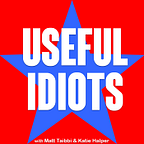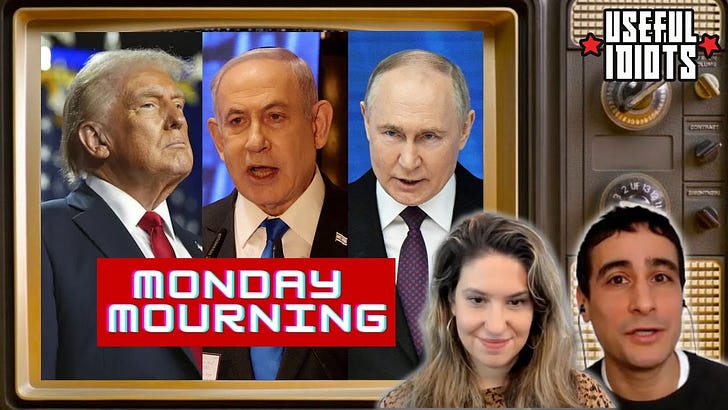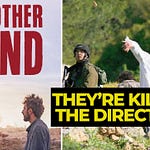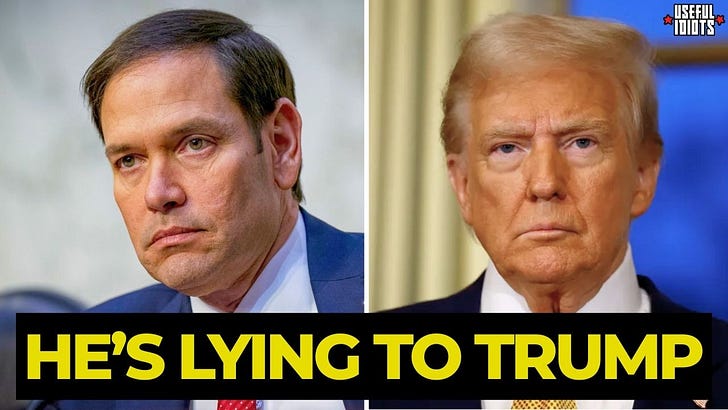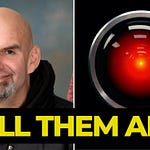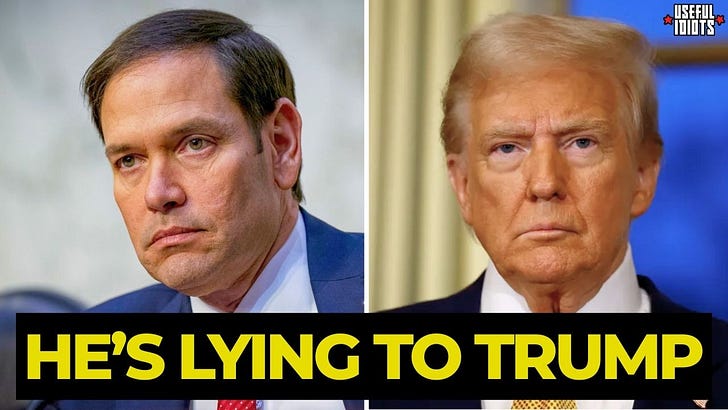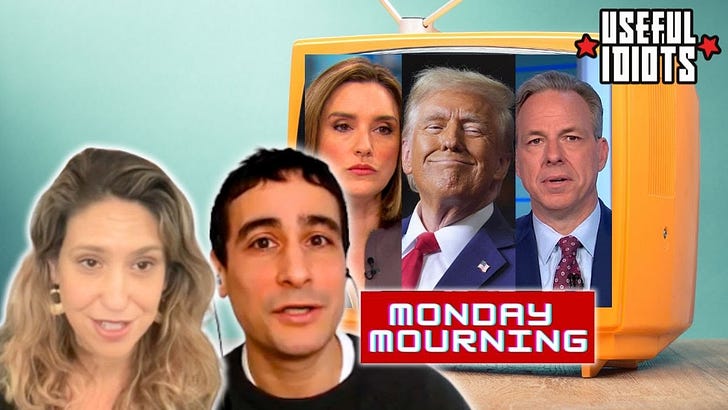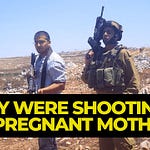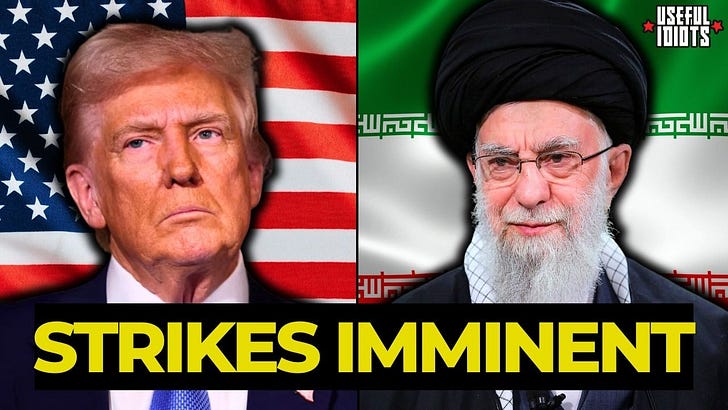This episode is free to all. Please help us share the stories of Mohamed, Ahmed, and Mosab:
For this week’s episode of Useful Idiots, we’re focused on the moral issue of our time: Israel’s genocide and starvation siege against the people of Gaza.
First up is our interview with two doctors, Dr. Mohamed Nour and Dr. Ahmed Twaij, who recount the horrifying methods of torture Israel uses against other doctors and nurses who have bravely attempted to give care in Gaza.
Doctors and nurses have to go through these checkpoints. And some of them would get picked out of the line. They would be made to go wait in another holding area.
One of them, I remember he said to me, “I got taken behind the building. I remember seeing two hundred men all completely naked with their hands in plastic cuffs on and blindfolded. They took all of my belongings, made me naked, no boxers, nothing. I remember sitting there for hours. Then they took us into a building and we were just beaten for another couple of hours.”
Then they get transported to a prison in Israel: “We got packed into the truck. It was like we were chickens. We weren’t picked up and sat down, just shoved in the back of a truck.”
When they get to the prison, the plastic cuffs get changed to metal cuffs. And the blindfold stays on. They'd be given a small area, one meter by two meters. And they get put in a certain position. And they stay in that position, like on their knees, essentially, for twenty hours a day. “We were allowed to lie down for four hours a day.”
There's one toilet between, I don't know, a hundred of them. I asked, “How did you go to the toilet?”
“They picked us up and took us to the toilet with our cuffs. There's no kind of tissue, no water, nothing. And we had to pull our pants back up ourselves and then go back and sit down.”
Another said to me, “I remember we got to have a shower once a week and it was always cold water. I'll never forget that because one day a prisoner cried out, ‘Why is it always cold? Why is it always cold water?’ And then we heard him scream because they'd thrown boiling water over him.” And no one's checking, right? Who's going there to check what's going on in the Israeli prisons?
But outside of the Israeli torture prisons, life isn’t much easier. Pulitzer-Prized Poet from Palestine Mosab Abu Toha says that worse than the bombs, the violent soldiers, and the machine guns is the hunger.
The ‘aid’ they're getting from the so-called Gaza Humanitarian Foundation [a fake humanitarian organization set up by Israel and the US] includes massacres because Israelis and mercenaries have been shooting at people. These are death sites.
People go to these sites in the very early hours of the morning before they open, hours and hours there waiting for the gates to open. Then the people who are running these sites would turn on a light which is a signal that now it's time to go. And they would go in, and then there would be another sign that it's shut. So anyone who stays there for five minutes, for ten minutes, they would be shot at, they would be killed.
They tell me: “The problem now is not the airstrike, it's not the drones, it's not the bombs, it's just that we don't have food.” People want to eat, even if they are going to be killed. They can't stop the killing, but they can't just stay in their tents while their children are crying out of hunger. Can you just imagine you're sitting in a tent and there are F-16s and drones in the sky that could drop a bomb and kill you, and you're sitting there for twelve hours and there is no food, there is no water. What do you do?
I was listening in the background when Samah, six years old, was in a tent with my mother-in-law in Gaza City. She was crying. She said, ‘I want to eat. I'm hungry. I'm hungry.’ And then my mother-in-law told her, ‘Samah, just be patient. When it's sunset, we will have some food. Just try to drink some water.’
Little babies had to fast for twelve or fifteen hours because the fathers and the brothers are outside looking for food knowing that they could not come back with anything or they could not come back at all.
A takeaway that was highlighted in both interviews was what we could do to help, not just as journalists, activists, poets, or doctors, but as people in our everyday lives. Mohamed explains:
I don't think it's okay for people not to talk about this. When I say people, I mean the general public. People who are going to work, watching Netflix, going out to the theatre, whatever. In years to come, being silent on this issue is going to be something people will really, really regret. The fact that we should at least have spoken about this.
We should be talking about it everywhere, at work, at schools, wherever, to say this is not acceptable. And so at the very least, we can all say, ‘look, we spoke up against this. We did as much as we could do for this issue, and we tried our best.’ I think everybody should be able to say that.
Thank you for supporting independent media. Help us tell the stories of the people in Palestine by sharing this interview.
Plus, catch this week’s Thursday Throwdown: Hunter Biden FLAMES George Clooney & Establishment Dems: “F*ck them!”

